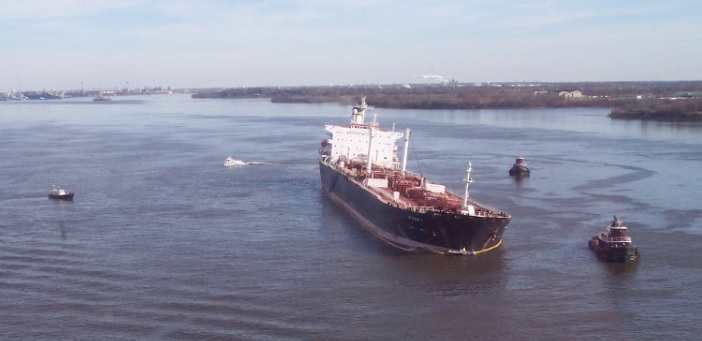On 29 March, the US Court of Appeals for the Third Circuit decided an important oil spill cost recovery case, involving the tanker Athos, owned by Frescati Shipping Company, back in November 2004.
The single-hulled oil tanker ‘Athos I’, owned by Frescati and chartered by CITGO East Coast Oil Corporation (CARCO), was heading to Paulsboro, NJ, to deliver a Venezuelan crude oil cargo, when it hit an abandoned anchor located on the bottom of the Delaware River. The allision resulted in a spill of approximately 265,000 gallons of crude oil into the River.
According to the US Coast Guard, 84,020 gallons of oil and oily liquid and 1,8178 gallons of submerged oil have been recovered. Another 7,812 tons of oily solids (cleanup materials and oil) have been collected. Cleanup personnel numbered over 1,300 responders.
Under the Oil Pollution Act (OPA), 33 U.S.C. § 2701, et seq., Frescati cleaned up the spill, which lasted many days and costed $143M. However, Frescati’s liability was capped at $45M, so the US reimbursed Frescati for the remaining $88M.
Following the cleanup, Frescati sued CARCO for breach of contract, seeking $55M, which included $10M for associated cleanup costs for damages that fell outside the scope of OPA’s liability cap. The US, which had reimbursed Frescati for certain spill-related expenses, also sued CARCO, as a partial subrogee to some of Frescati’s claims. CARCO also filed its own claims.
The US District Court for the Eastern District of Pennsylvania held that Frescati was entitled to nearly $56M in damages from CARCO based on its determination that CARCO breached its contractual duty to comply with a “safe berth warranty” as well as prejudgment interest of $16M; the US was awarded half of its claim for $88M on its subrogated breach of contract claim, plus $4.6M in prejudgment interest.
According to Anthony B. Cavender by Pillsbury Winthrop Shaw Pittman LLP law firm, the Third Circuit affirmed the District Court’s ruling with respect to Frescati and reversed the finding regarding CARCO’s equitable recoupment defense against the US, concluding that this defense was not available to CARCO, and the US was entitled “to a full recovery.”
In addition, CARCO’s late-filed affirmative defense that it was also entitled to OPA’s limited liability cap under 33 U.S.C. § 2702(d)(2)(B) was filed too late and without the “requisite clarity,” and was waived and failed on the merits. The Third Circuit also affirmed the District Court’s ruling denying CARCO’s motion for partial summary judgment on its limitation of liability defense.
According to Liskow & Lewis law firm, Athos I demonstrates the extent to which OPA litigation may become protracted, while at the same time, it provides a warning to defendants in OPA litigation to carefully identify the claims and defenses at issue.
A subrogated claim by the Government may only be met by defenses that would have been available to the defendant in response to the original claims of the subrogor. Any claims or defenses the defendant might have against the subrogee directly (but not in the context of the subrogated claim) must be raised in a third-party claim or counterclaim at the risk of forfeiture. Moreover, any defenses a defendant seeks to raise under the OPA should be clearly identified in the answer – it is not sufficient to cite the OPA generally. CARCO’s liability went from roughly $120 million (inclusive of significant pre-judgment interest) to a yet-to-be determined (on remand) sum greatly in excess of that amount by virtue of waived defenses.
Explore more herebelow:


































































